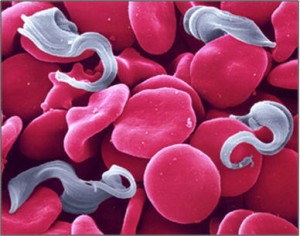
Parasitology is the study of parasites, the hosts they infect, and the relationship between them. As a biological discipline, the scope of parasitology is not determined by the environment or the organism in question, but by organismal lifestyle. Thus, parasitology pulls on expertise from many areas such as immunology, cell biology, genetics, biochemistry, ecology, bioinformatics, evolution, molecular biology and developmental biology.
A parasitic life is one of the most common modes of survival with representatives from all major taxa and ranging from unicellular organisms to multicellular vertebrates. The diversity of parasite species and hosts has led to the study of parasitology being divided into much simpler units: medical parasitology, veterinary parasitology, quantitative parasitology, structural parasitology, parasite ecology and parasite taxonomy and phylogenetics. This course provides a general introduction to this vast biological field.
This course introduces students to classical and current parasitology. Students will discuss basic principles of parasitology, parasite life cycles, host-parasite interaction, therapeutic and control programs, epidemiology, and ecological and societal considerations. The course explores diverse classes of parasitic organisms with emphasis on protozoan and helminthic diseases and the parasites’ molecular biology. Group discussion and selected reading will facilitate further integrative learning and appreciation for parasite biology. This course counts as an elective in the cell/molecular biology and organismal biology subject area for the Biology BA and BS degrees.
Image from http://www96.homepage.villanova.edu/christopher.pascual/research/trypanosome.htm
